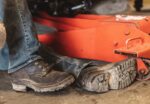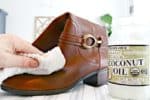How long can you tolerate the sound of squeaking? Initially, you can ignore it with the hope that it would eventually go away but after hearing the first thousand squeaks, you lose patience and decide to get rid of your boots, right?
I know the squeaking of boots are not only irritating but embarrassing as well because, with every step you walk, you just become the centre of attraction with eyes rolling at you.
Although this squeaking noise is not dangerous or unhealthy, it can really bother you if not dealt with. So before jumping to any conclusion, take some time to find possible causes behind it and its potential solutions.
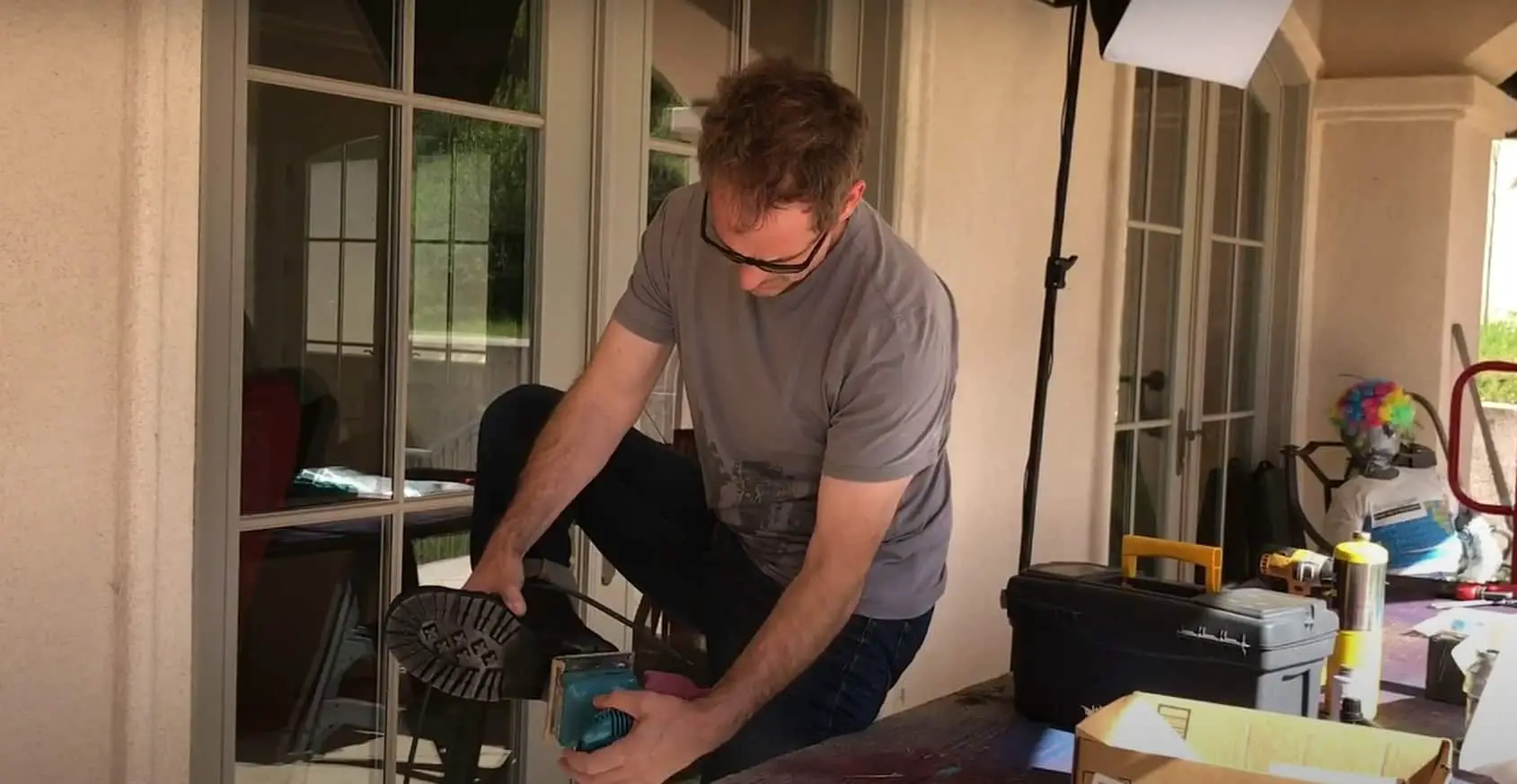
You can stop your work boots from squeaking just by rubbing the outsoles with sandpaper to make the surface of the outsoles rough or try locating any gap in the seams to check if the outsoles have started to come off the boots. Also, dry your wet boots thoroughly that might be the cause of the squeaking noise.
Stay with me and you’ll come to know how you can fix your squeaky boots. Thank me later!
Why do my Boots Squeak when I walk?
The two leading causes that make the squeaking sound in your boots are stiffness and friction. Other than that some of the possible reasons could be:
1.) Your boots are brand new
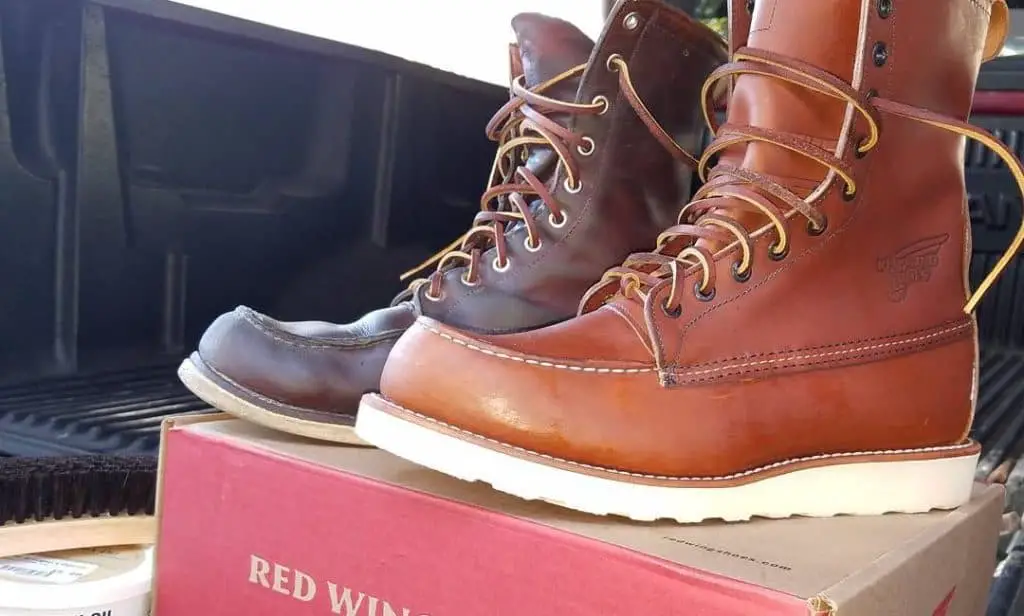
If your boots are made of leather then let me tell you, it is not a one-step process but includes multiple treatments that make them as stiff as woos.
This stiffness makes your boots prone to squeaking and this same stiffness is responsible for the occurrence of blisters on your feet.
2.) Wet boots squeaks
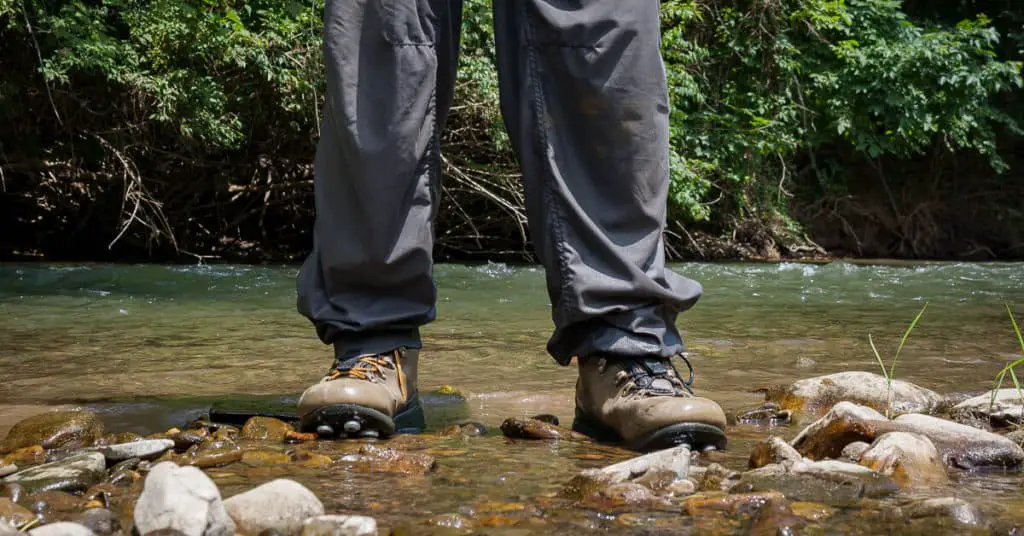
You must have noticed that whenever your boots are wet, they squeak a lot! The soles, insoles and inner lining of the boots are made of spongy material that tends to soak gallons of water.
While walking, you apply pressure on the sponge which releases water out of it which leads to squeaking.
3.) Your boots are ages old!
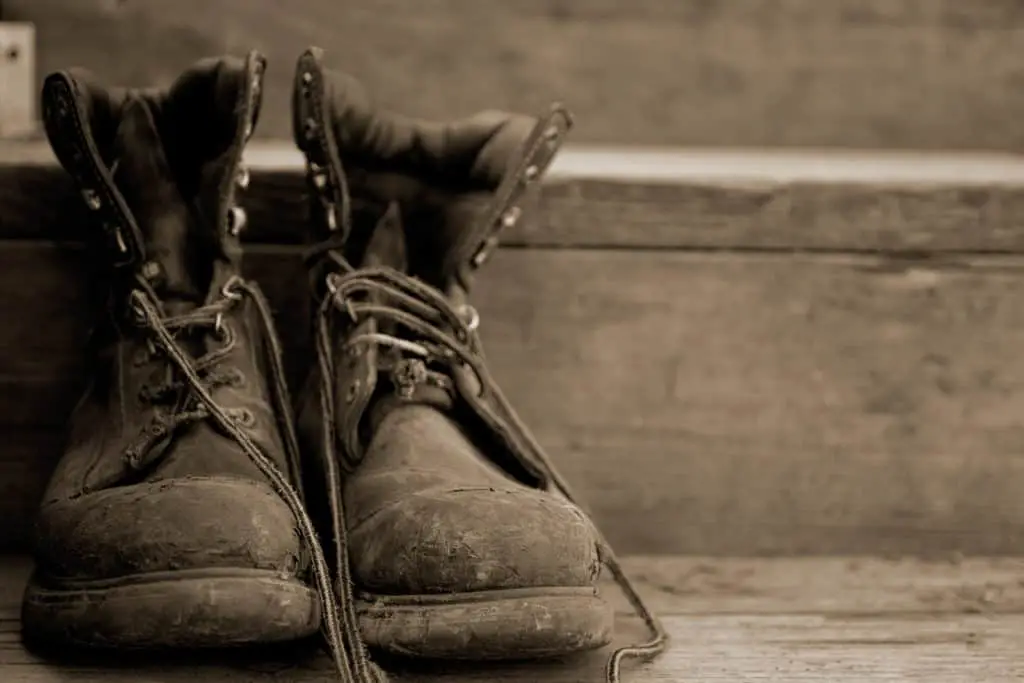
Your dying boots may also squeak a lot. Old boots have cracks, are stiff, and have loose soles. All these factors contribute in squeaking.
4.) Manufacturing Imperfections
Sometimes it’s the manufacturer’s fault which becomes the main culprit. Many times, the sole and upper of the boots are manufactured separately and are attached using separate methods.
This causes the formation of air pockets in the sole hence progresses to irritating squeaking.
5.) Improper Outsoles
Tacky outsoles with tread patterns are suitable for maintaining balance but these same patterns create suction effects after coming in contact with the ground.
Unfortunately, this suction breaks with a squeaky sound as soon as you lift your foot to take a step.
Which part of your boots squeak?
According to my observation, there are three basic areas on boots that squeak the most and they are
-
-
- The soles
- The insoles
- The upper
-
The reason is the same as we have discussed above. Therefore you have to particularly determine the problem area and then use one of these methods which I am going to tell you now.
8 Easy Ways to Stop Your Boots from Squeaking
Found the squeaking area of your boot? Great! It’s time to fix it with some great hacks. Remember, try them one by one and not together. You can try the next way if one fails!
1. Break in your boots properly
Breaking in your new boots is quite important. By this process, you automatically reduce the chances of squeaking.
Your shiny new boots have got inflexible or rigid leather and sole which causes friction while you walk. And that is why they squeak!
I know all of us are excited to show off our new boots but be patient. Don’t wear them so quickly, instead take sufficient time to break in your boots.
2. Use a conditioning oil to soften your boots
This specific method is used when the upper of your boot is culprit. The easiest way to combat this is to rub a great conditioning oil into your boots with a clean cloth. All you have to do is:
-
-
- Remove the laces from your boots and clean your boots using a stiff-bristled brush.
- After that just take a cloth and rub it on the surfaces of oil.
- Start applying the oil on the sides, tongue, upper and back of the boots with the cloth.
- Repeat the process if needed for fully lubricating your boots.
-
These steps will not only nourish your boots but make them soft on your feet. And trust me there will be no room for squeaking as well.
3. Rubbing dryer sheets or sandpaper to silence your boots
Using a dryer sheet
While walking on flat surfaces if your boots squeak then you can reduce it using a dryer sheet.
-
-
- Take a dryer sheet and rub it back and forth against the surface of the sole for equally distributing the residue over the entire surface.
- Repeat the process 2-3 times with a new dryer sheet.
-
What will the residue do? Well, the residue sticks to the bottom of your soles providing a layer of light lubrication. This little lubrication is enough to save your boots from squeaking.
Scraping the soles with fine sandpaper
If your boots squeak on bad floors or smooth cement then your boots won’t get much benefit from light lubrication. Instead, you have to create some grip using a sheet of sandpaper of grit 60-120.
Just take the sandpaper and rub it on the bottom of the soles. This will help create an uneven grip and will definitely mute your shoes on slick surfaces.
4. Using a talcum powder
Most of the squeaking from our boots is a result of continuous friction and using talcum powder has turned out to be an effective remedy for it.
You can use any talcum powder available in the market as all of them serve the same purpose. The powder is perfect to reduce the moisture between the sole and the upper. Just follow these steps:
Step 1 Remove the insole of your boots (if removable)
Step 2 Once the sole has been pried up just apply enough powder to cover the whole heel.
Step 3 Set aside the boots for at least 24 hours allowing the powder to absorb excess moisture.
Step 4 Once you have performed the above steps just dust off excess powder and replace the sole.
Try walking with your boots on. You will notice that there is no squeaking now!
5. Fix the soles and seam the insoles
The tacky outsoles may get detached from the boots with time. If that’s the issue then you should definitely fix it using a glue, especially from the heel area. If you are unable to do it, just take them to a cobbler.
Another culprit can be your removable pair of insoles, which after rough use don’t stay in place and as you walk your insoles compel the boots to squeak. The easiest solution is to tightly stick the insoles at their place or permanently replace them with better insoles like Timberland Anti-Fatigue Insole, Superfeet Green Work Boot Insole or Walk Hero Work Boot Insoles.
6. Dry your wet boots to stop squeaking
Your work boots probably squeak because they are wet. It happens sometimes that you have got your boots wet the last time you wore them and you forgot to dry them thoroughly.
When the leather dampens and the outsoles trap water in them, boots squeak a lot.
Therefore, to stop the squeaking dry your boots nicely using a hair dryer or just dry them overnight under the fan.
7. Check if the squeak is from inside the boots
Work boots also squeak when the insole is not set steadily on the surface of the boots and they rub against the sole of the boots.
To stop this, remove the insole and insert a new insole that fits right to the shape and size of the boots using glue. Press the insole to set it perfectly on the sole of the boots and dry the glue properly by placing the boots under the fan.
8. Check if the tongue of the boots is making the squeaking noise
If the tongue of the boots is making the squeaking noise, just lubricate the tongue using good lubricating oil and when you wear the boots, make sure that you secure the tongue with the laces tightly.
How to stop leather boots from squeaking?
Leather boots squeak when the leather stiffens and they get rubbed against the metals of the toe box.
To stop your leather boots from squeaking just follow the steps below:
1.) Apply a conditioning oil like mink oil or coconut oil to soften the leather fibers
2.) Rub the leather fibers using soft gentle motions of your finger
3.) Take sandpaper and make the surface of the outsoles rough
4.) Check the insoles if they are set securely on the soles
5.) Keep the boots under the fan overnight just to make sure they are not wet anyhow
6.) Your leather boots should now be free of the squeaking noise
How to stop Ariat boots from squeaking?
Ariat boots might squeak because of the following reasons:
1.) If they squeak because they are wet, dry the boots well using a boot dryer.
2.) If they squeak because they have removable insoles, take out the insole and spray talcum powder on the inside of the boots, then place a dryer sheet over the surface and then place the insoles once again inside the boots. This should stop the squeaking noise.
3.) The smooth surface of the Ariat boots might have been punctured with gravels or nails. Remove the particles from the outsoles and seal the punctures using sealants.
How to stop Cowboy boots from squeaking?
Generally, cowboy boots are made of breathable leather uppers. So, good conditioning of the boots using a leather conditioner or mink oil should resolve the issue.
How to stop Timberland boots from squeaking?
Your Timberland boots would be prone to squeaking before the break-in period. Therefore, in order to stop the squeaking noise, try to break-in your boots as fast as possible.
If your boots squeak for any other reason, locate the cause and see the tips for each problem mentioned above in the ways to stop the squeaking of work boots.
It’s time to bid Adieu!
Whether new or old, boots squeak for a variety of reasons. Although this is not a serious problem, it is quite bothersome and embarrassing.
Regardless of the reason, you can always stop your boots from squeaking by choosing one of the following methods which I have mentioned.
We hope that your fix turns out to be successful and you enjoy a squeak-free walking experience.




